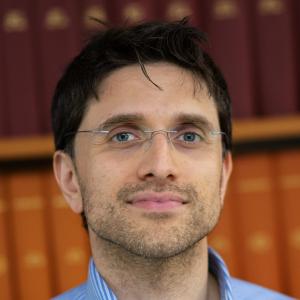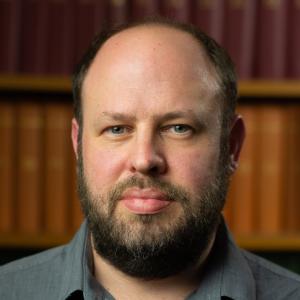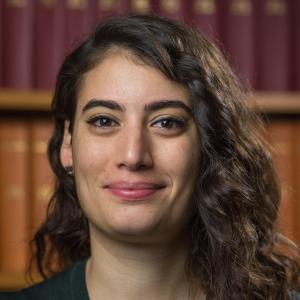Neurophysiological biomarkers for optimising adaptive Deep Brain Stimulation for Parkinson’s
Project
Neurophysiological biomarkers for optimising adaptive Deep Brain Stimulation for Parkinson’s
Although Deep Brain Stimulation (DBS) is an established therapy for Parkinson’s disease, its potential for personalised symptom control remains underexploited. Recent advances in DBS technology now enable simultaneous neural sensing and responsive, tailored stimulation. These developments create new opportunities to identify neurophysiological biomarkers that could be targeted to alleviate specific symptoms, including tremor, gait disturbance, and cognitive impairment.
The goal of this PhD studentship is to advance our understanding of how activity within cortico-basal ganglia circuits contributes to specific motor and non-motor symptoms of Parkinson’s. These insights will inform the development of novel DBS strategies designed to normalise circuit dysfunction underlying individual symptoms. To achieve this, we will collect clinical and neurophysiological data from patients implanted with sensing-enabled DBS devices. Cortical activity, sleep, movement, and gait will be monitored using electroencephalography (EEG), electromyography (EMG), and wearable sensors. Advanced signal processing and machine learning methods will then be applied to identify biomarkers and to design targeted stimulation paradigms, which will be tested with patients.
The project will take place in the Brain Network Dynamics Unit of the Nuffield Department of Clinical Neurosciences and in the Medical Research Council Centre of Research Excellence in Restorative Neural Dynamics (MRC CoRE RND). Students will benefit from the extensive interdisciplinary skills training and personalised career development opportunities available within the Unit and the MRC CoRE RND. Students will receive specialised training in their areas of project research (see below) as well as, for example, in the translation and commercialisation of research, best practice in Open Science, and how to effectively involve and engage patients and the public with research.
Focusing on the cortico-basal ganglia circuit in Parkinson’s, this studentship offers the opportunity to work with cutting-edge techniques including wireless neural activity streaming from implanted DBS devices, high density EEG, EMG, and wearable sensor recordings. You will gain advanced training in patient facing research and in state-of-the-art analytical approaches spanning signal processing, computational modelling, and machine learning.
This four-year Ph.D. (D.Phil.) studentship offers three years of full-time tuition fees at the Home rate, and four years of non-taxable stipend at the full-time UKRI rate (including any uplifts announced). Both Home students and International students are eligible to receive this funding package. Please see further details about MRC/UKRI studentships and updated guidance regarding Home and International eligibility. Successful offer-holders who have applied by the December deadline may also be considered for other University of Oxford scholarships.
Interested candidates should possess, or expect to receive, a 1st class or upper 2nd class degree (or equivalent) in a related scientific discipline, e.g. biological or physical sciences, medicine, computer science, engineering, mathematics. Previous experience in neuroscience research is highly desirable.
Candidates must contact the lead project supervisor before submitting an application. To find out more about this studentship, the research project, and the application process, please contact Dr Ashwini Oswal by email on ashwini.oswal@ndcn.ox.ac.uk.
To be considered for this studentship, please submit an application for admission to the D.Phil. in Clinical Neurosciences at the Nuffield Department of Clinical Neurosciences (course code RD_CU1), following the guidance for applications to this course. On the application form, in the section headed ‘Departmental Studentship Applications’, please indicate that you are applying for a studentship and enter the reference code “26NDCN01MRC” into the funding tab.
The closing date for applications is 12.00 midday UK time on Tuesday 2nd December 2025.
Opening in November 2025, the MRC CoRE RND is an exciting team science enterprise that is focused on harnessing the moment-to-moment interactions between nerve cells (‘neural dynamics’) to transform medical device-based therapy for brain conditions. The MRC CoRE RND incorporates discovery research and translational research aligned to empirical neuroscience, computational neuroscience, experimental medicine, and biomedical engineering. The MRC CoRE RND is exceptionally collaborative, involving partners in academia, neurotechnology industry, research charities, and clinical services. It will champion values supporting a positive research culture.
Supervisors
Applications are invited from both Home students and International students to join a multidisciplinary team of researchers studying neurophysiological biomarkers to improve adaptive Deep Brain Stimulation for Parkinson’s. This studentship is available from the start of academic year 2026/27, is for 4 years, and will be co-supervised by Dr Ashwini Oswal, Professor Huiling Tan, Professor Hayriye Cagnan and Professor Andrew Sharott at the MRC Centre of Research Excellence in Restorative Neural Dynamics. The studentship project will also benefit from the expertise of Professor Alex Green at the Nuffield Department of Clinical Neurosciences.



